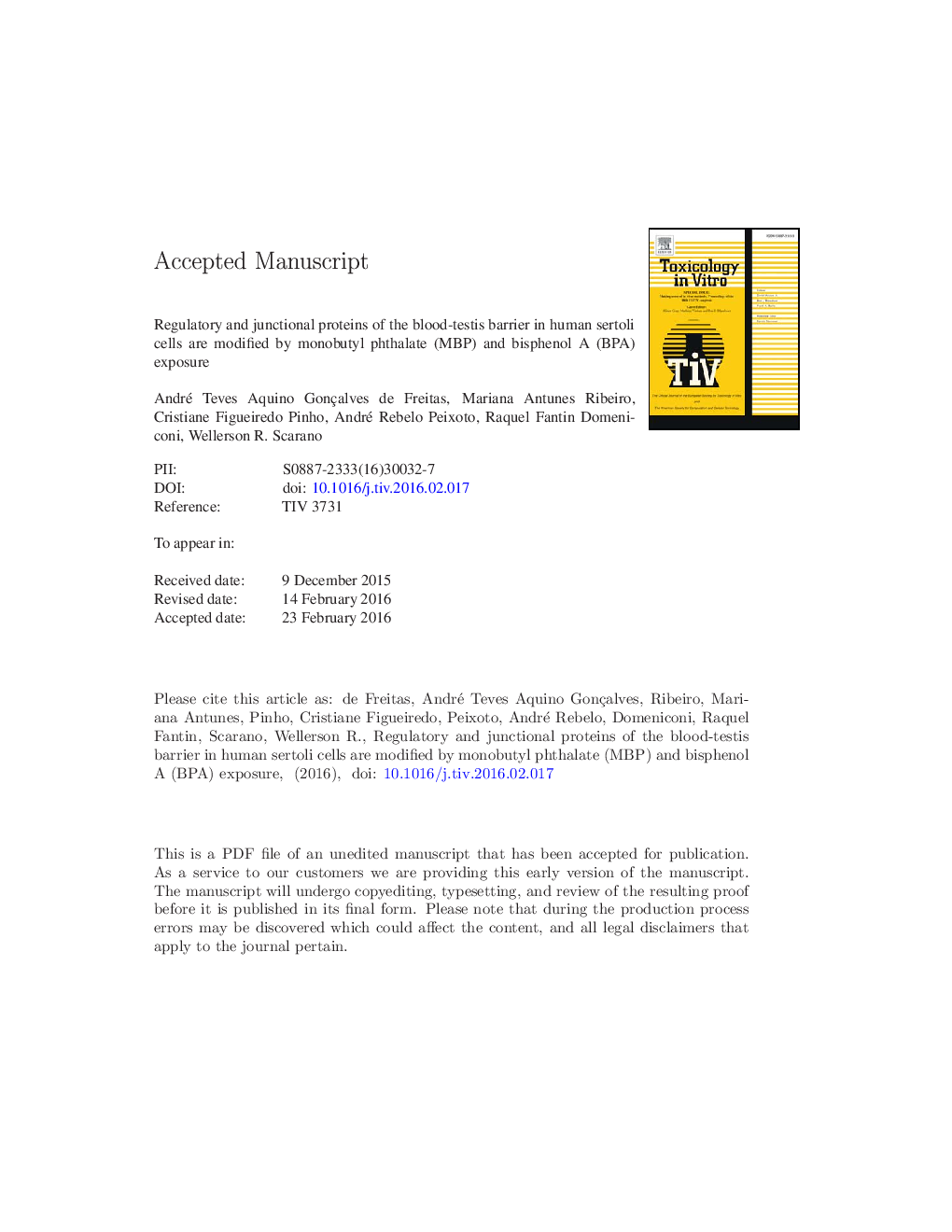| Article ID | Journal | Published Year | Pages | File Type |
|---|---|---|---|---|
| 5861065 | Toxicology in Vitro | 2016 | 32 Pages |
Abstract
The blood-testis barrier (BTB) is responsible for providing a protected environment and coordinating the spermatogenesis. Endocrine disruptors (EDs) might lead to infertility, interfering in the BTB structure and modulation. This study aimed to correlate the actions of two EDs, monobutyl phthalate (MBP) and bisphenol A (BPA) in different periods of exposure, in a low toxicity dose to the human Sertoli cells (HSeC) and its effects on the proteins of the BTB and regulatory proteins involved in its modulation. HSeC cells were exposed to MBP (10 μM) and BPA (20 μM) for 6 and 48 h. Western Blot assay indicated that MBP was able to reduce the expression of occludin, ZO-1, N-cadherin and Androgen Receptor (AR), while BPA leads to a reduction of occludin, ZO-1, β-catenin and AR. TGF-β2 and F-actin were not modified. Phalloidin and Hematoxylin and Eosin assay revealed phenotically disruption in Sertoli cells adhesion, without changes in F-actin expression or localization. Our data suggested both EDs present potential for disrupting the structure and maintenance of the human BTB by AR dependent pathway.
Keywords
Related Topics
Life Sciences
Environmental Science
Health, Toxicology and Mutagenesis
Authors
André Teves Aquino Gonçalves de Freitas, Mariana Antunes Ribeiro, Cristiane Figueiredo Pinho, André Rebelo Peixoto, Raquel Fantin Domeniconi, Wellerson R. Scarano,
